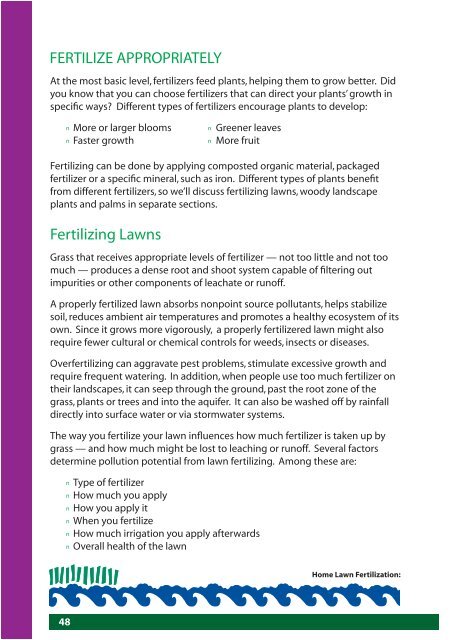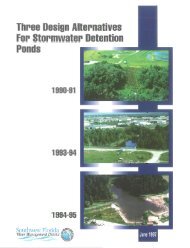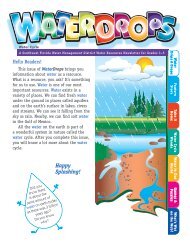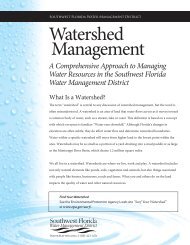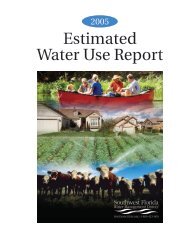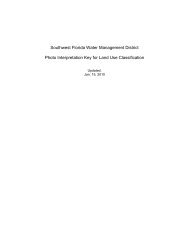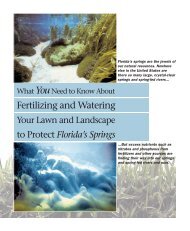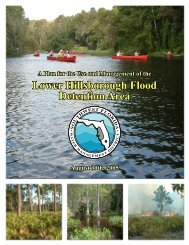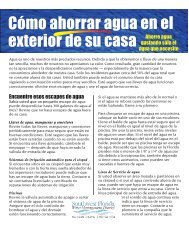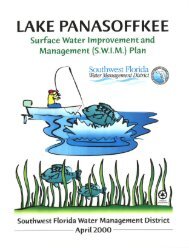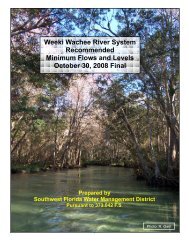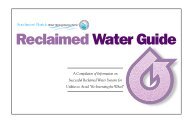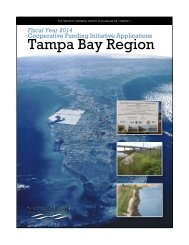A Guide to Florida-Friendly Landscaping - Brevard County
A Guide to Florida-Friendly Landscaping - Brevard County
A Guide to Florida-Friendly Landscaping - Brevard County
You also want an ePaper? Increase the reach of your titles
YUMPU automatically turns print PDFs into web optimized ePapers that Google loves.
FERTILIZE APPROPRIATELY<br />
At the most basic level, fertilizers feed plants, helping them <strong>to</strong> grow better. Did<br />
you know that you can choose fertilizers that can direct your plants’ growth in<br />
specific ways? Different types of fertilizers encourage plants <strong>to</strong> develop:<br />
n More or larger blooms<br />
n Faster growth<br />
n Greener leaves<br />
n More fruit<br />
Fertilizing can be done by applying composted organic material, packaged<br />
fertilizer or a specific mineral, such as iron. Different types of plants benefit<br />
from different fertilizers, so we’ll discuss fertilizing lawns, woody landscape<br />
plants and palms in separate sections.<br />
Fertilizing Lawns<br />
Grass that receives appropriate levels of fertilizer — not <strong>to</strong>o little and not <strong>to</strong>o<br />
much — produces a dense root and shoot system capable of filtering out<br />
impurities or other components of leachate or runoff.<br />
A properly fertilized lawn absorbs nonpoint source pollutants, helps stabilize<br />
soil, reduces ambient air temperatures and promotes a healthy ecosystem of its<br />
own. Since it grows more vigorously, a properly fertilizered lawn might also<br />
require fewer cultural or chemical controls for weeds, insects or diseases.<br />
Overfertilizing can aggravate pest problems, stimulate excessive growth and<br />
require frequent watering. In addition, when people use <strong>to</strong>o much fertilizer on<br />
their landscapes, it can seep through the ground, past the root zone of the<br />
grass, plants or trees and in<strong>to</strong> the aquifer. It can also be washed off by rainfall<br />
directly in<strong>to</strong> surface water or via s<strong>to</strong>rmwater systems.<br />
The way you fertilize your lawn influences how much fertilizer is taken up by<br />
grass — and how much might be lost <strong>to</strong> leaching or runoff. Several fac<strong>to</strong>rs<br />
determine pollution potential from lawn fertilizing. Among these are:<br />
n Type of fertilizer<br />
n How much you apply<br />
n How you apply it<br />
n When you fertilize<br />
n How much irrigation you apply afterwards<br />
n Overall health of the lawn<br />
Home Lawn Fertilization:<br />
48


